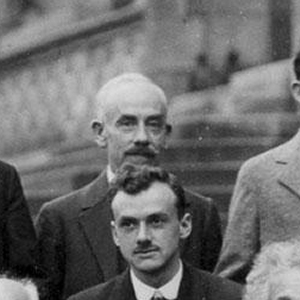Théophile de Donder facts for kids
Quick facts for kids
Théophile de Donder
|
|
|---|---|

Théophile Ernest de Donder (1872 – 1957) at the 1927 Solvay Conference. Appearing in front of de Donder is Paul Dirac.
|
|
| Born | 19 August 1872 |
| Died | 11 May 1957 (aged 84) |
| Nationality | Belgian |
| Alma mater | Université Libre de Bruxelles |
| Known for | Being the father of irreversible thermodynamics |
| Scientific career | |
| Fields | Physicist and mathematician |
| Institutions | Université Libre de Bruxelles |
| Academic advisors | Henri Poincaré |
| Doctoral students | Ilya Prigogine Léon Van Hove Théophile Lepage |
| Influences | Albert Einstein |
Théophile Ernest de Donder (born August 19, 1872 – died May 11, 1957) was a Belgian mathematician and physicist. He is well-known for his important work in the field of thermodynamics. He helped connect ideas about how chemicals react (called chemical affinity) with the concept of free energy. This work was published in 1923.
Contents
What Was Théophile de Donder's Education?
Théophile de Donder earned his highest degree in physics and mathematics in 1899. He received this doctorate from the Université Libre de Bruxelles in Belgium. His special research paper was titled Sur la Théorie des Invariants Intégraux, which means "On the Theory of Integral Invariants."
What Did Théophile de Donder Do in His Career?
De Donder worked as a professor at the Université Libre de Bruxelles from 1911 to 1942. Early in his career, he continued the work of famous mathematicians like Henri Poincaré and Élie Cartan.
How Did Albert Einstein Influence De Donder?
Starting in 1914, de Donder was greatly inspired by the ideas of Albert Einstein. He became a strong supporter of Einstein's theory of relativity. This theory explains how space and time are connected.
What Was De Donder's Main Discovery?
De Donder became very famous in 1923. He developed a new way to define chemical affinity. This is the tendency of atoms or molecules to combine with each other. He showed a clear link between this chemical affinity and Gibbs free energy. Free energy is a measure of the useful work that can be obtained from a system.
What Is Irreversible Thermodynamics?
Théophile de Donder is often called the "father of thermodynamics of irreversible processes." This field studies how energy changes in systems that cannot easily go back to their original state. His work was later expanded by another famous scientist, Ilya Prigogine. De Donder was also a close friend of Albert Einstein.
Did De Donder Attend the Solvay Conference?
Yes, in 1927, Théophile de Donder was one of the scientists who attended the fifth Solvay Conference on Physics. This important meeting took place in Belgium and brought together many of the world's leading physicists.
Books by Théophile de Donder
Théophile de Donder wrote several books about his scientific ideas:
- Thermodynamic Theory of Affinity: A Book of Principles. (1936)
- The Mathematical Theory of Relativity. (1927)
- Sur la théorie des invariants intégraux (his thesis) (1899)
- Théorie du champ électromagnétique de Maxwell-Lorentz et du champ gravifique d'Einstein (1917)
- La gravifique Einsteinienne (1921)
- Introduction à la gravifique einsteinienne (1925)
- Théorie mathématique de l'électricité (1925)
- Théorie des champs gravifiques (1926)
- Application de la gravifique einsteinienne (1930)
- Théorie invariantive du calcul des variations (1931)
See also
- Chemical affinity
- Chemical thermodynamics
- Extent of reaction
- Schrödinger equation
- de Donder gauge
- de Donder–Weyl theory

 | Percy Lavon Julian |
 | Katherine Johnson |
 | George Washington Carver |
 | Annie Easley |

